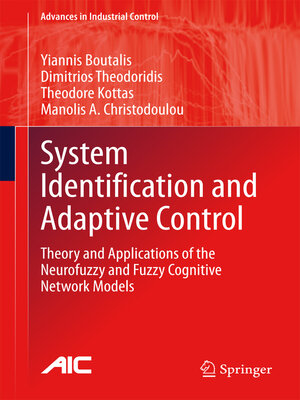System Identification and Adaptive Control
ebook ∣ Theory and Applications of the Neurofuzzy and Fuzzy Cognitive Network Models · Advances in Industrial Control
By Yiannis Boutalis

Sign up to save your library
With an OverDrive account, you can save your favorite libraries for at-a-glance information about availability. Find out more about OverDrive accounts.
Find this title in Libby, the library reading app by OverDrive.



Search for a digital library with this title
Title found at these libraries:
| Library Name | Distance |
|---|---|
| Loading... |
Presenting current trends in the development and applications of intelligent systems in engineering, this monograph focuses on recent research results in system identification and control. The recurrent neurofuzzy and the fuzzy cognitive network (FCN) models are presented. Both models are suitable for partially-known or unknown complex time-varying systems. Neurofuzzy Adaptive Control contains rigorous proofs of its statements which result in concrete conclusions for the selection of the design parameters of the algorithms presented. The neurofuzzy model combines concepts from fuzzy systems and recurrent high-order neural networks to produce powerful system approximations that are used for adaptive control. The FCN model stems from fuzzy cognitive maps and uses the notion of "concepts" and their causal relationships to capture the behavior of complex systems. The book shows how, with the benefit of proper training algorithms, these models are potent system emulators suitable for use in engineering systems. All chapters are supported by illustrative simulation experiments, while separate chapters are devoted to the potential industrial applications of each model including projects in:
Researchers and graduate students working in adaptive estimation and intelligent control will find Neurofuzzy Adaptive Control of interest both for the currency of its models and because it demonstrates their relevance for real systems. The monograph also shows industrial engineers how to test intelligent adaptive control easily using proven theoretical results.







